Biographies and memoirs are the most popular genres of books. They tell us about the life of a person or a group of people, their achievements and failures, their struggles and successes.
Biographies are often written by the subject themselves or by someone who was close to them during their lifetime. Memoirs are usually written by people who have had an interesting life themselves.
Table of contents
- Browse Best Biographies & Memoirs Books
- What are some best selling or famous biographies autobiographies and memoirs?
- What do biographies and memoirs have in common?
- 9 must-read biographies of iconic figures
- The top 5 memoirs of the year
- A beginner’s guide to writing a memoir
- Biographies vs. memoirs: What’s the difference?
- How to use biographies and memoirs in your personal development journey
- The power of storytelling in biographies and memoirs
- Adapting a biography or memoir for the screen: A case study
- The ethics of writing a biography or memoir
- Overcoming writer’s block when working on a biography or memoir
- Using creative writing techniques in biographies and memoirs
Some famous biographers include:
Some famous memoirists include:
Browse Best Biographies & Memoirs Books
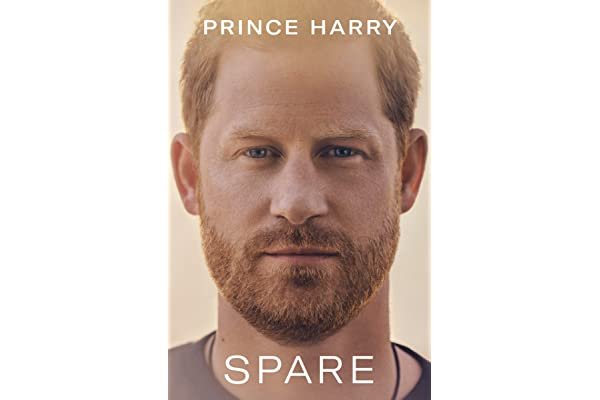
Spare: by Prince Harry

Windswept & Interesting – Billy Connolly

Menopausing – Davina McCall

Friends, Lovers and the Big Terrible Thing

Madly, Deeply: The Alan Rickman Diaries

Good Pop, Bad Pop: The Jarvis Cocker
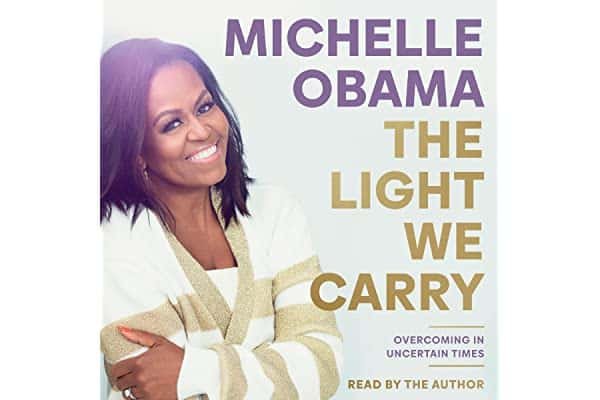
The Light We Carry:Michelle Obama

Elizabeth: An Intimate Portrait – Gyles Brandreth

Don’t Worry, Be Happy: Poppy O’Neill

More Fool Me: Stephen Fry
Biographies and memoirs are written by individuals about their lives. They are often a form of self-expression, as well as a means of revealing the writer’s thoughts, feelings, and memories.
The most common type of biography is linear, meaning that it follows the person’s life in chronological order. This type is usually written by a family member or close friend of the person being profiled. The most famous example is “A Moveable Feast” by Ernest Hemingway.
Memoirs are usually written from an individual’s point of view and can be either linear or nonlinear in perspective. Some examples include “The Glass Castle” by Jeannette Walls and “Wild” by Cheryl Strayed.
What are some best selling or famous biographies autobiographies and memoirs?
Biographies and memoirs are a genre of nonfiction writing. Biography is the story of someone’s life written by another person. Autobiography is a story of one’s own life written by oneself. Memoir is similar to autobiography, but it usually covers a shorter period in the author’s life.
Some famous biographies are:
– The Prince, Niccolò Machiavelli
– The Life and Death of Adolf Hitler, John Toland
– A Moveable Feast, Ernest Hemingway
– Angela’s Ashes, Frank McCourt
Some famous autobiographies are:
– I Know Why the Caged Bird Sings, Maya Angelou
– Born on Third Base: A One Percenter Makes the Case for Tackling Inequality, Poverty and Injustice–And How We Can All Do It Together, Mike Rose
– I Am Malala: The Girl Who Stood Up for Education and Was Shot by the Taliban,Malala Yousafzai
– Woman Warrior: Memoirs of a Girlhood Among Ghosts, Maxine Hong Kingston
What do biographies and memoirs have in common?
Biographies and memoirs are written about real people, by someone who knows them. Biographies and memoirs are both written about real people. And they are both written by someone who knows the person that they are writing about.
The difference between the two is that a biography is written about someone who has already died, while a memoir is written about someone who is alive.
9 must-read biographies of iconic figures
Biographies have the power to transport us through time, introducing us to fascinating individuals who have shaped history and left their mark on the world. From political leaders to artists, scientists to activists, biographies offer a window into the lives of some of the most interesting and influential people of all time.
If you’re looking to dive into the world of biographies, where do you start?
Here are 10 must-read biographies of iconic figures that are sure to captivate and inspire you:
1. Steve Jobs” by Walter Isaacson

This bestselling biography offers an intimate look at the co-founder of Apple, tracking his rise to the top of the tech world and his tumultuous relationships with colleagues and family.
2. The Autobiography of Malcolm X” as told to Alex Haley

This powerful memoir chronicles the life of civil rights activist Malcolm X, from his troubled childhood to his conversion to Islam and his work as a leader in the Nation of Islam.
3. Cleopatra: A Life” by Stacy Schiff
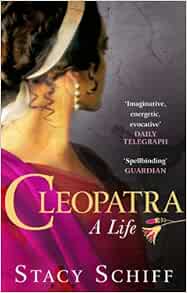
This award-winning biography brings the legendary Egyptian queen to life, painting a nuanced portrait of a savvy and ambitious ruler who used her intelligence and charm to hold onto power.
4. The Death and Life of Great American Cities” by Jane Jacobs
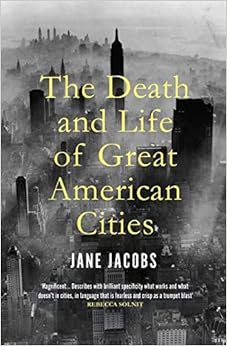
This influential work on urban planning was written by Jacobs, a journalist and activist who spent decades fighting for livable, diverse cities.
5. The Diary of Anne Frank” edited by Otto H. Frank and Mirjam Pressler
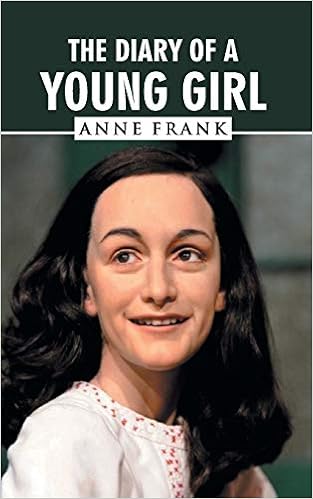
This poignant diary, written by a young Jewish girl hiding from the Nazis during World War II, has become a classic of Holocaust literature.
6. The Story of My Experiments with Truth” by Mahatma Gandhi

In this autobiography, Gandhi reflects on his journey to nonviolence and civil disobedience, and the role they played in India’s fight for independence.
7. The Color Purple” by Alice Walker

This Pulitzer Prize-winning novel, written in the form of letters, tells the story of an African American woman living in the rural South in the 1930s.
8. Einstein: His Life and Universe” by Walter Isaacson

This comprehensive biography delves into the life and work of legendary physicist Albert Einstein, exploring his groundbreaking contributions to science and his complex personal life.
9. The Soul of an Octopus” by Sy Montgomery
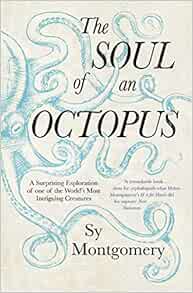
This beautifully written book explores the mysterious inner world of octopuses, drawing on the latest scientific research and the author’s own personal encounters with these intelligent and fascinating creatures.
No matter what your interests are, there’s a biography out there that is sure to captivate and inspire you. Happy reading!
The top 5 memoirs of the year
Memoirs offer a unique glimpse into the lives of others, allowing us to walk in someone else’s shoes and see the world through their eyes. Whether funny, heart-wrenching, or thought-provoking, the best memoirs leave a lasting impression and often spark important conversations.
Here are the top 5 memoirs of the year that you won’t want to miss:
1. Educated” by Tara Westover
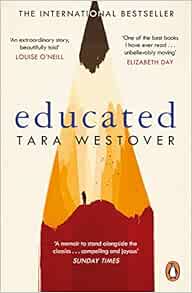
In this powerful memoir, Westover shares her journey from growing up in a strict and abusive household to eventually earning a PhD from Cambridge University.
2. Becoming” by Michelle Obama

The former First Lady’s memoir is an inspiring and candid look at her life, from her childhood on the South Side of Chicago to her time in the White House.
3. Uncanny Valley” by Anna Wiener

This memoir of Silicon Valley’s tech industry offers a critical and humorous look at the culture of startups and the impact of the digital economy.
4. The Deepest Well” by Nadine Burke Harris

This eye-opening memoir by a pediatrician documents the link between childhood trauma and its long-term health effects, and the importance of addressing these issues in order to create a healthier society.
5. Heavy” by Kiese Laymon

In this deeply personal and moving memoir, Laymon reflects on his own experiences with weight, race, and identity, and the ways in which these intersecting issues have shaped his life.
These memoirs offer a wide range of perspectives and experiences and are sure to leave a lasting impression on readers. Happy reading!
A beginner’s guide to writing a memoir
Writing a memoir can be a daunting task, but it can also be a rewarding and cathartic experience. Whether you’re looking to document your own life story or the story of someone close to you, a memoir can be a powerful way to share your experiences and connect with readers.
If you’re new to the world of memoir writing, here is a beginner’s guide to get you started:
- Start with an outline: Before you begin writing, it can be helpful to create an outline of your story. This will help you organize your thoughts and keep your writing on track.
- Write in scenes: A memoir is not a chronological retelling of your entire life. Instead, focus on specific events or moments that are significant or meaningful to you. Write these scenes as if they are short stories, with a clear beginning, middle, and end.
- Show, don’t tell: Instead of simply telling readers what happened, try to show them through descriptive details and dialogue. This will help bring your story to life and make it more engaging for readers.
- Be honest: A memoir is an opportunity to share your own unique perspective and experiences. Don’t be afraid to be honest and vulnerable in your writing, even if it means revealing difficult or uncomfortable moments.
- Seek feedback: As with any writing project, it can be helpful to get feedback from others as you work on your memoir. This can be in the form of a writing group, a writing coach, or trusted friends or family members.
Writing a memoir is no easy task, but with some planning and perseverance, you can create a meaningful and impactful work. Good luck!
Biographies vs. memoirs: What’s the difference?
Biographies and memoirs are both types of nonfiction books that tell the story of a person’s life, but they are not the same thing. While they may have some similarities, there are also some key differences between the two.
Biographies are written by an author who is not the subject of the book. They are based on extensive research and often include quotes and anecdotes from the subject’s life. The goal of a biography is to provide an accurate and complete portrayal of the subject’s life, from birth to present.
Memoirs, on the other hand, are written by the subject themselves. They offer a personal perspective and are usually focused on a specific period of time or theme in the writer’s life. Memoirs can be more subjective than biographies, as they are written from the writer’s own point of view and may include their own thoughts and feelings.
Both biographies and memoirs can be engaging and informative, but they offer different types of insights into a person’s life. If you’re interested in learning about a specific historical figure or contemporary celebrity, a biography might be a good choice. If you’re more interested in hearing a personal story from someone’s own perspective, a memoir might be a better fit.
How to use biographies and memoirs in your personal development journey
Biographies and memoirs can be more than just entertaining reads – they can also be powerful tools for personal growth and development. By learning about the experiences and lessons of others, we can gain insight into our own lives and find inspiration to make positive changes.
Here are a few ways you can use biographies and memoirs in your personal development journey:
- Learn from role models: Many biographies and memoirs are written about people who have achieved great things or overcome challenges in their lives. Reading about these individuals can provide valuable lessons and serve as inspiration for your own personal growth.
- Reflect on your own experiences: Memoirs can help you gain a deeper understanding of your own life and experiences. Reading about someone else’s journey can help you reflect on your own and gain new insights into your own struggles and accomplishments.
- Explore different perspectives: Biographies and memoirs offer a wide range of perspectives, from different cultural and historical backgrounds to unique life experiences. Reading about these different viewpoints can help broaden your understanding of the world and your place in it.
- Practice empathy: By reading about someone else’s experiences, we can develop our ability to empathize and better understand the perspectives of others. This can help us become more compassionate and understanding individuals.
Whether you’re looking for inspiration, self-reflection, or a new perspective, biographies and memoirs can be a valuable addition to your personal development journey.
The power of storytelling in biographies and memoirs
Storytelling is at the heart of both biographies and memoirs, and it is this element that gives these types of books their power to captivate and inspire readers. A well-told story can transport us to another time and place, and help us connect with the characters and events in a way that feels personal and meaningful.
So, what makes a good story in a biography or memoir? Here are a few key elements to consider:
- A clear narrative arc: A good story should have a clear beginning, middle, and end, with a sense of progression and conflict. In a biography or memoir, this might involve tracking the subject’s rise to success, their struggles and challenges, and their eventual resolution or resolution.
- Compelling characters: Whether you’re writing about real people or fictional characters, it’s important to make them feel fully fleshed out and believable. This might involve highlighting their flaws and weaknesses as well as their strengths and accomplishments.
- Descriptive details: Good storytelling relies on descriptive details that help bring the story to life. Whether it’s setting the scene, describing characters, or conveying emotions, the right details can make a story feel more immersive and real.
- A strong voice: The voice of the narrator – whether it’s the subject themselves or the author – is a key element of any good story. A strong, authentic voice can help draw readers in and keep them engaged.
By incorporating these elements into your storytelling, you can craft compelling and memorable biographies and memoirs that will leave a lasting impression on readers.
Adapting a biography or memoir for the screen: A case study
Bringing a biography or memoir to the screen – whether it’s a film, television show, or web series – can be a challenging but rewarding task. Adapting a book for the screen requires careful consideration of the source material, as well as creative decisions about how to translate it for a visual medium.
One recent example of a successful adaptation is the film “The Queen’s Gambit,” which was based on the 1983 memoir of the same name by Walter Tevis. The book tells the story of Beth Harmon, a young girl with a talent for chess who becomes a grandmaster in the 1960s.
To adapt the book for the screen, the filmmakers made a number of creative decisions that helped bring the story to life:
- They updated the time period: While the book is set in the 1960s, the film is set in the 1950s and 1960s. This allowed the filmmakers to take advantage of the period aesthetic and add an extra layer of nostalgia to the story.
- They fleshed out minor characters: In the book, many of the supporting characters are not fully developed. In the film, however, the filmmakers gave these characters more depth and complexity, which helped to round out the story.
- They added visual flair: The film includes a number of stylish and visually striking sequences, such as Beth’s dreams and flashbacks, which help to add atmosphere and bring the story to life.
Overall, the film “The Queen’s Gambit” is a successful adaptation of the memoir, thanks to its creative choices that helped bring the source material to the screen in a fresh and engaging way.
The ethics of writing a biography or memoir
Writing a biography or memoir involves telling the story of another person’s life, which can raise a number of ethical considerations.
How much of the subject’s life should be shared?
How much artistic license is acceptable in the storytelling?
And how can the writer ensure that they are being fair and accurate in their portrayal of the subject?
Here are a few ethical considerations to keep in mind when writing a biography or memoir:
- Obtain permission: If you are writing about someone else’s life, it is important to get their permission before proceeding. This can help to establish trust and respect between the writer and the subject, and ensure that the subject’s wishes are taken into account.
- Fact-check: Whether you are writing a biography or a memoir, it is important to verify the accuracy of your information. This might involve checking sources, consulting with experts, or fact-checking with the subject.
- Respect privacy: While a biography or memoir is meant to shed light on the subject’s life, it is important to respect their privacy and avoid sharing personal information that they may not want made public.
- Consider the subject’s perspective: As the writer, it is important to consider the subject’s perspective and try to see things from their point of view. This can help to ensure that the portrayal of their life is fair and balanced.
By following these ethical guidelines, writers can ensure that their biographies and memoirs are respectful, accurate, and fair to the subjects of their stories.
Overcoming writer’s block when working on a biography or memoir
Writer’s block is a common issue that can arise when working on any writing project, and biographies and memoirs are no exception. Whether you’re struggling to get started, stuck in the middle, or unsure how to wrap things up, writer’s block can be a frustrating and demoralizing experience.
So, how can you overcome writer’s block when working on a biography or memoir? Here are a few tips to try:
- Set aside dedicated writing time: One of the biggest obstacles to writing can be finding the time to do it. By setting aside dedicated writing time, you can create a regular habit and build momentum.
- Break the project into smaller chunks: A big writing project can feel overwhelming, so try breaking it down into smaller chunks. This might involve setting a word count goal for each writing session, or outlining the story in advance.
- Change your writing location: Sometimes a change of scenery can help spark creativity. Try writing in a different location, such as a coffee shop or a park, to see if it helps break up the monotony.
- Practice freewriting: Freewriting is a technique where you continue writing without stopping or editing yourself. This can help you get words on the page and overcome writer’s block by letting your thoughts flow freely.
- Take a break: If you’re feeling stuck, it might be helpful to take a break and come back to the project later. This can give you time to rest and recharge, and allow you to approach the writing with fresh eyes.
Writer’s block is a common challenge for writers, but it doesn’t have to be a roadblock. By trying these tips and being persistent, you can overcome writer’s block and make progress on your biography or memoir.
Using creative writing techniques in biographies and memoirs
Biographies and memoirs are types of nonfiction writing, but that doesn’t mean they have to be dry or factual. In fact, incorporating creative writing techniques can help bring these types of books to life and make them more engaging for readers.
Here are a few ways you can use creative writing techniques in your biographies and memoirs:
- Use descriptive language: Good writing should paint a picture in the reader’s mind, and this is especially important in biographies and memoirs. Use descriptive language to help readers visualize the characters, settings, and events in the story.
- Use dialogue: Including dialogue in your writing can help bring characters to life and make the story feel more dynamic. Use dialogue to reveal character traits, advance the plot, and add conflict and tension to the story.
- Use figurative language: Figurative language – such as metaphors, similes, and personification – can help add depth and richness to your writing. By using these techniques, you can help readers connect with the story in a more emotional way.
- Use sensory details: Adding sensory details – such as sights, sounds, smells, tastes, and textures – can help make the story feel more immersive and real. By engaging multiple senses, you can help readers feel more connected to the story.
By using these creative writing techniques, you can bring your biographies and memoirs to life and create a more engaging and memorable reading experience for your audience.
Pingback: 10 Best Children & Young Adult Biographies of 2023 | yearlybestdeals
Pingback: 10 Best Community & Culture Biographies books of 2023
Pingback: 10 Best Essays, Journals & Letters books of 2023 | yearlybestdeals